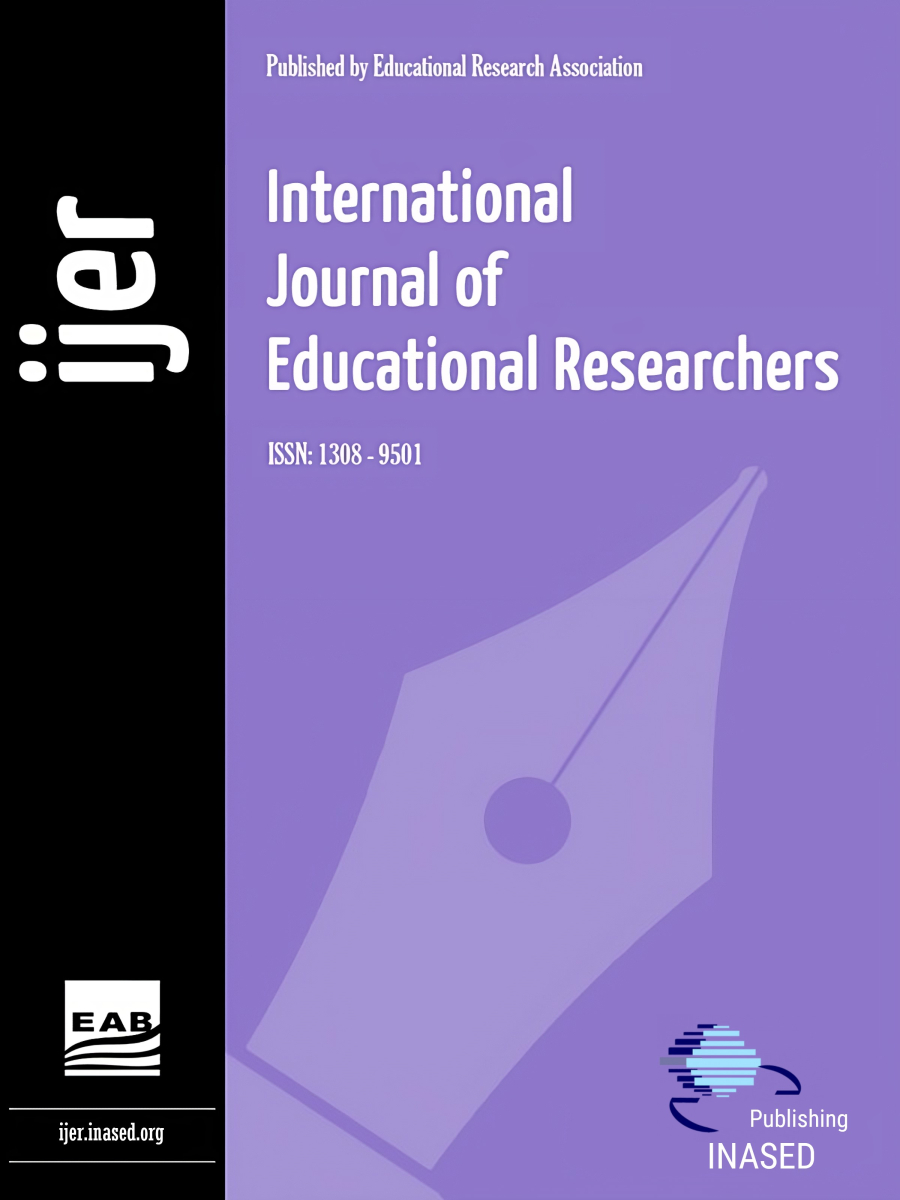Original article | International Journal of Educational Researchers 2018, Vol. 9(5) 1-10
Optimization of Achievements Assessment of Preschool Children Using A Virtual System
Aida Norviliene & Sada Ramanauskiene
pp. 1 - 10 | Manu. Number: MANU-1901-05-0003
Published online: December 30, 2018 | Number of Views: 77 | Number of Download: 714
Abstract
In this article authors present assessment system of preschool children achievements in Lithuania, present the teacher's opinion about achievements assessment description of preschool children. This article presents the recommendations for children's achievement assessment optimisation using virtual systems. The applied qualitative research using individual interviews, a total of 7 preschool education teachers and managers from Klaipeda region. The results: optimization of implementation of achievements assessment description of preschool children to using virtual system of description; rationalizing and allocating the cost of labor in the teaching process; better education planning process with regard to children's individual needs and abilities, which are determined in virtual system of children's achievement assessment.
Keywords: Preschool children, achievements assessment, optimization of assessment, virtual system.
| How to Cite this Article? |
|---|
|
APA 6th edition Harvard Chicago 16th edition |
| References |
|---|
|
Blamires M., Reardon D., Hammond S., Church Ch. (2015). ICT in the Early Years: Implications for Successful Implementation https://www.researchgate.net/publication/282860052_ICT_in_the_Early_Years_Implications_for_Successful_Implementation Convention on the Rights of the Child (1989). Downloaded from https://www.unicef.org/crc/ Edwards S., (2013). Digital play in the early years: a contextual response to the problem of integrating digital tehnologies and play-based learning in the early childhood curriculum. European Early ChildhoodEducation Research Journal, 21(2), 199-212. Gudonienė D., Rutkauskienė D., Lauraitis A. 2013. Pažangių mokymosi technologijų naudojimas ugdymo procese. ISSN 1392-0561. INFORMACIJOS MOKSLAI. 2013. 66. p. 96-107. ICTs in Early Childhood Care and Education. IITE Policy brief 2012. https://iite.unesco.org/pics/publications/en/files/3214720.pdf Ikimokyklinio amžiaus vaikų pasiekimų vertinimo aprašas. (2014). ŠMM. Klaipėda: UAB „Baltic Printing House“. IKT aprūpinimo ir panaudojimo įstaigose analizė, 2018. Švietimo proceso modernizavimo 2018-2020 metais programos 1 priedas. Klaipėdos miesto savivaldybės tarybos kolegijos posėdžio protokolas Nr. TAK-5, 2018-07-13. Inovatyvių mokymo(si) metodų ir IKT taikymas II knyga. Metodinė priemonė pradinių klasių mokytojams ir specialiesiems pedagogams, 2010. Vilnius, Ugdymo plėtotės centras. Kerckaert S., Vanderlinde R. &Johan van Braak (2015), The role of ICT in early childhood education: Scale development and research on ICT use and influencing factors, Pages 183-199. https://www.tandfonline.com/doi/abs/10.1080/1350293X.2015.1016804 Kumari A. 2014. Learning Shaped by ICT in Early Childhood Care and Education: Indian Context. Journal of International Academic Research for Multidisciplinary. Impact Factor 1.393, ISSN: 2320-5083, Volume 2, Issue 6. Lietuvos pažangos strategija „Lietuva 2030“. (2012). Downloaded from <https://e-seimas.lrs.lt/portal/legalAct/lt/TAD/TAIS.425517>. Lietuvos statistikos departamentas [LT]. Rodiklių duomenų bazė. Žiūrėta 2018-08-08. https://osp.stat.gov.lt/statistiniu-rodikliu-analize?hash=6859c2d4-cbb7-43ff-afae-c0326e58a711#/ LR Švietimo ir mokslo ministro Įsakymas Nr. V-195, 2016 m. kovo 15 d. https://www.e-tar.lt/portal/lt/legalAct/7e9cee00eb4611e58deaaf0783ebf65b Palaiologou I. (2016). Techers‘ dispositions towards the role of digital devices in play-based pedagogy in early childhood. Early Years, 36(3), 305-321. Plowman, L. & Stephen, C. 2005 Children, Play and Computers in Pre-School Education. British Journal of Educational Technology, 36 (2), pp. 145-157. Ramanauskiene S., Norviliene A. 2017. Optimization of Achievements Assessmnt of Preschool Children. Society. Integration. Education. Proceedings of the International Scientific Conference. Volume II, May 26th-27th, 2017. p. 318-329. Rezeknes Technologiju Akademija. Stephen C., Edwards S. (2018). Young Children Playing and Learning in a Digital Age: a Cultural and Critical Perspective Švietimas. Education 2017. 2018. Lietuvos statistikos departamentas. Statistics Lithuania https://osp.stat.gov.lt/services-portlet/pub-edition-file?id=30220 Techtarget, 2018. https://searchcio.techtarget.com/definition/ICT-information-and-communications-technology-or-technologies Valstybinė švietimo 2013 – 2022 metų strategija (2013). Downloaded from: <https://www.smm.lt/uploads/lawacts/docs/451_f91e8f0a036e87d0634760f97ba07225.pdf>. Žadeikaitė, L., Gulbinas, R., 2014. Socialinio pedagogo socioedukacinės aplinkos tobulinimas panaudojant KTI. Žiūrėta [2017 – 03 – 06]. Prieiga internetu:http://socialinisugdymas.leu.lt/index.php/socialinisugdymas/article/viewFile/38/34 |


